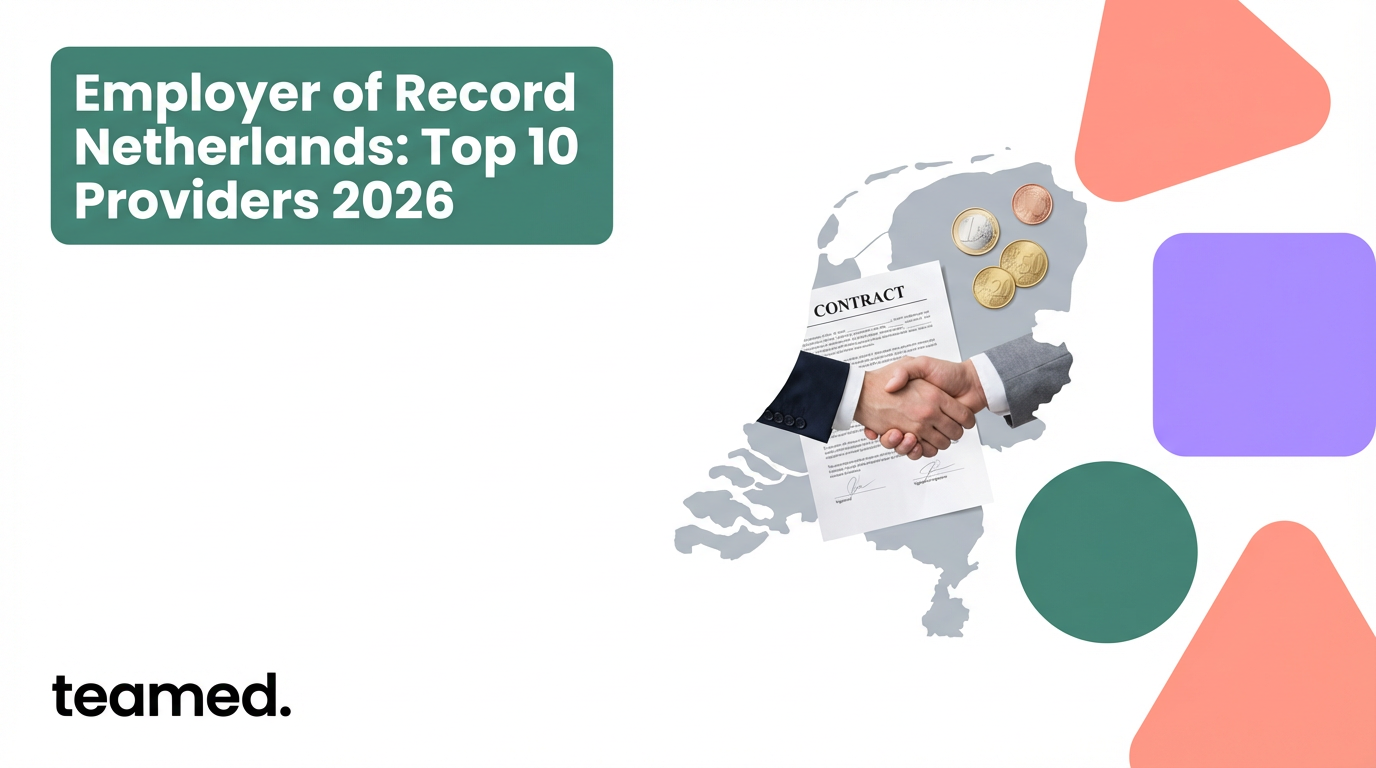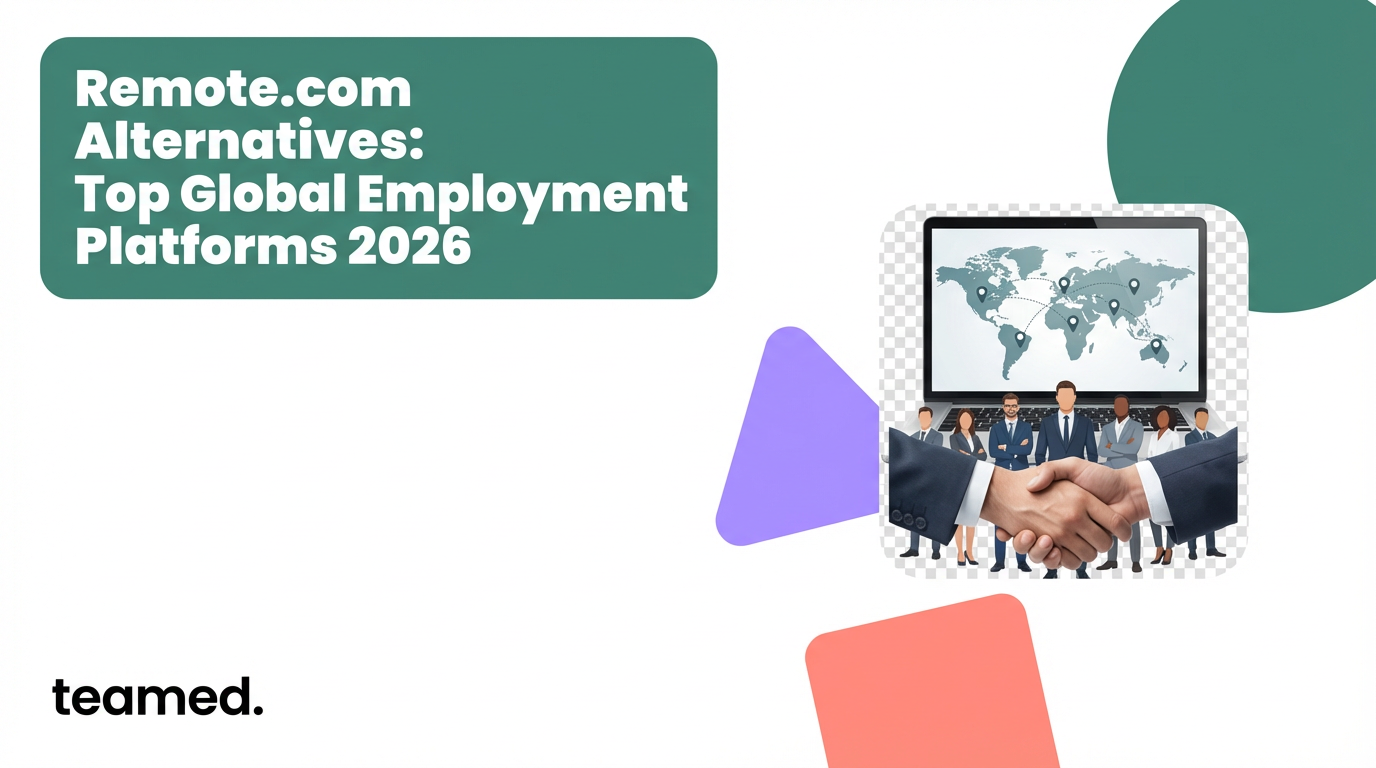In today's insightful interview, we have the privilege of speaking with Darren Franks, Founder of Titc.io (formerly known as TalentintheCloud). With a vision that extends beyond the conventional, Titc.io has been instrumental in shaping the FinTech landscape through a comprehensive range of services encompassing Talent Acquisition, Marketing, Public Relations, Event Management, and Personal Branding.
In our discussion with Darren Franks, he insightfully unpacked the nuances of the African landscape, emphasising areas like emerging markets, skill development, and education. "Companies now hire talent in Africa, allowing individuals to work from locations like Cape Town, Nairobi, Lagos, or Dar es Salaam, provided they have internet access and are in compatible time zones." This experienced recruiter wanted to highlight the "current Africa's demographic profile, which is also a significant factor. It has the world's youngest population, which is extremely tech-savvy, and is receiving substantial investment".
In the interview, Darren highlighted the importance of international support for Africa's economic development, stating, "Support from international entities like USAID, UK institutions, and Chinese investments can greatly benefit the economy across Africa, provided the funds are directed to appropriate channels." This was followed by a discussion on Africa's investment dynamics and the synergy between governments, educational bodies, and the private sector. Darren then shifted focus to private investments, emphasizing, "...particularly U.S. companies are investing in Africa. This shift in the market (investments) in recent years has been towards remote working and leveraging Africa's youthful, skilled workforce."
Darren pointed to the importance of some of the emerging markets which are also gaining attention. "Rwanda, for instance, is undergoing a significant digital transformation, making it a rising hub in Africa. This country, once associated with its tragic history of genocide, is now recognised for its progressive leadership and development."
We also explored the unique trajectory of the FinTech sector in Africa, contrasting its development with European experiences, underscoring the diverse yet distinct paths of progress across regions: "...developed regions transitioned from traditional banking to digital platforms, whereas parts of Africa moved from cash to mobile payments."
He specifically highlighted the presence of diversity but pointed out that this doesn't necessarily equate to inclusion: "The challenge ahead is to not only achieve diversity but to foster an environment where everyone is truly integrated."
Highlights from Darren
- Global businesses are seeking affordable, quality skills.
- U.S. companies are increasingly hiring in African cities like Cape Town and Nairobi.
- Africa's young, tech-savvy population is drawing significant investments.
- There's a shift towards remote working, utilizing Africa's skilled youth.
- Mobile phone penetration and connectivity are key to Africa's transition from cash to mobile payments, bypassing traditional banking.
- Rwanda is emerging as a tech hub, known for its digital transformation and progressive leadership.
- International support from entities like USAID and Chinese investments is crucial for Africa's economic growth.
- The next step is ensuring not just diversity, but true integration in the workforce.
Full Interview
What sets your key area of expertise apart from the rest?
At TITC, as we're currently known, we have evolved from being purely a staffing business, originally named Talent in the Cloud, into TITC.
Our focus is on being a growth agency for FinTechs in emerging markets, especially in Africa. This gives us a broad perspective on what the industry is doing, not just from a hiring standpoint, but also in terms of what drives businesses. We cover a range of services including marketing, PR, events, and personal branding. We support our FinTech clients, whether they are small startups or large, well-established companies looking to explore different routes or markets.
What differentiates us, or sets us apart from others? Firstly, there's hardly anyone else doing what we do. Secondly, our dedication to the sector is unparalleled. We have been committed to this sector day in, day out for nearly eight years, building a strong reputation and a respected name.
How does your experience with recruitment differ across Europe, the Middle East, and Africa?
In the beginning of my career, I spent about seven to ten years in the UK, primarily focusing on Western Europe. After that, I moved to the Middle East, where I covered the region including the UAE, Saudi Arabia, Qatar, and others, encompassing the MENA region. For the past decade, my focus has been mainly on Africa. There are distinct differences between these continents.
Europe, as a more mature economy, has structured buying processes, especially at the enterprise level. Becoming a preferred supplier involves navigating through many formalities. In contrast, my experience in the Middle East was more relationship-driven. It took a couple of years to establish credibility and build a network to make a significant impact.
Regarding Africa, it's important to note that it's a vast continent, comprising around 53 countries, though I haven't worked in all of them. I've dealt with 18 or 19 countries, and each has its unique business practices and cultural nuances. What works in South Africa, which is more commercialized and somewhat similar to Europe, may not work in Nigeria, Malawi, Kenya, or Tanzania.
Other parts of Africa tend to be more relationship-focused, akin to the Middle East.
Businesses continuously seek talent that combines quality skills with affordability. In recent years, especially post-Covid, there's been a notable shift towards Africa.
What drives businesses to recruit talent in Africa, and how do the advantages of this approach stand out from other continents?
Initially, the trend in the world of technology was to outsource to India, known for its vast, tech-savvy population and significant technological investments. Following this, the focus shifted to Eastern Europe, particularly countries like Poland and the Czech Republic, due to their abundant skills. However, as these economies developed, salary demands increased, reducing the cost benefits for companies in Western Europe outsourcing to these regions.
Businesses continuously seek talent that combines quality skills with affordability. In recent years, especially post-Covid, there's been a notable shift towards Africa. Big companies are eyeing parts of Africa for skilled tech professionals. South Africa, in particular, has been a longstanding talent exporter.
I think there's a running joke. Whichever bar you go to, anywhere on the planet, you'll bump into a South African. And that's kind of true. However, the emergence of remote working has introduced a new dynamic. Companies now hire talent in Africa, allowing individuals to work from locations like Cape Town, Nairobi, Lagos, or Dar es Salaam, provided they have internet access and are in compatible time zones. This approach eliminates the need for physical relocation.
Africa's demographic profile is also a significant factor. It has the world's youngest population, which is extremely tech-savvy, and is receiving substantial investment. While poverty remains an issue, various associations, educational initiatives, and particularly U.S. companies are investing in Africa to upskill its population and create global work opportunities.
This shift in the market in recent years has been towards remote working and leveraging Africa's youthful, skilled workforce.
How does the dynamic nature of the FinTech sector in South Africa present unique challenges and what is the greatest opportunity within this sector in this context?
To understand the dynamic nature of the FinTech sector in South Africa and its unique challenges and opportunities, it's essential to start by comparing FinTech in emerging markets, such as Latin America, parts of Asia, and Africa, with that in western and developed markets. In the latter, FinTech is primarily about convenience.
In emerging markets, however, FinTech addresses a critical issue known as financial inclusion, making it a necessity for daily life. An early example of groundbreaking FinTech is Mpesa, initially developed in the UK and now a key player in Kenya and other markets. Mpesa enabled people without bank accounts to trade and access funds, all via mobile phones.
Mobile phone penetration and connectivity are crucial drivers in making FinTech work in emerging markets. For instance, while the UK and Europe experienced a gradual transition from landlines to mobile phones, Africa leapfrogged this phase due to the absence of fixed-line infrastructure, moving directly to mobile technology. This trend is mirrored in FinTech, where developed regions transitioned from traditional banking to digital platforms, whereas parts of Africa moved from cash to mobile payments.
Financial inclusion is a major driver in these markets, aiming to assist the unbanked or underbanked individuals in integrating into the broader financial services ecosystem. This contrasts with the situation in the west, where financial products like loans and mortgages cater to different consumer needs.
In Africa and Latin America, FinTech solutions often focus on both consumers and micro-merchants, ensuring financial inclusion for small street-side sellers. This inclusion is vital for accessing credit, crucial for day-to-day survival and business operations.
Banks also play a significant role in this ecosystem. Despite varying degrees of development in compliance and regulatory frameworks across African countries, banks provide essential infrastructure and governance, allowing FinTechs to operate. Often, FinTechs build upon the foundations laid by banks, enhancing customer experience and interface.
In conclusion, banks remain integral to the FinTech ecosystem, especially in regions like Africa, where they provide the necessary infrastructure and regulatory frameworks for FinTech innovation.
Some parts of Africa moved from cash to mobile payments.
Which European countries are most active in hiring from African regions, and what are their preferred destinations?
The primary African countries in focus are the 'big four' – South Africa, Kenya, Nigeria, and Ghana. These countries boast advanced education systems, technological savviness, and a history of talent exportation. However, emerging markets are also gaining attention. Rwanda, for instance, is undergoing a significant digital transformation, making it a rising hub in Africa. This country, once associated with its tragic history of genocide, is now recognised for its progressive leadership and development.
Mauritius is another noteworthy mention. Despite past allegations of money laundering, it has evolved beyond its grey-list status and is now seen as a cosmopolitan country. Other African countries like Zambia, Malawi, and Zimbabwe are also on the rise. Zimbabwe, in particular, is known for its remarkable talent pool.
Over the next decade or so, we can expect to see other lesser-known countries emerging as significant talent sources. The focus here is predominantly on Sub-Saharan Africa. However, North Africa shouldn't be overlooked. Countries like Egypt, Tunisia, and Morocco are also teeming with talent.
There's a growing need for more investment and focus on the African continent. Support from international entities like USAID, UK institutions, and Chinese investments can greatly benefit the economy across Africa, provided the funds are directed to appropriate channels. This comprehensive approach underscores the continent's potential as a fertile ground for talent and opportunity.
There's a growing need for more investment and focus on the African continent.
How should businesses determine where to source specific skill sets from various African countries?
I think the choice of where to source skills largely depends on the type of business you operate.
For instance, consider an insurance company in the UK. They might seek a call center that is more cost-effective than those in the UK or Europe. There might be some stigma around outsourcing to parts of Asia, and they may prefer a location more aligned with their time zone and culture, without issues like accent differences. In this case, as such a company, I would consider South Africa or Ghana.
These countries offer a similar cultural background and time zone, well-developed markets, and people who are typically well-traveled with an appreciation for various cultures. Similarly, if I were in the hospitality sector in the Middle East, looking for front-of-house staff, I would likely turn to Kenya, known for its exceptional talent and friendly people. This isn't to say other countries lack such qualities; it's just an example.
When it comes to tech talent, particularly in fields like e-commerce or FinTech, I would look at South Africa, Kenya, and Nigeria, due to their advancements in these areas. For emerging technologies like data science and AI, I would again consider these countries but focus more on the academic environment - whether data science is being taught and if there are master's degree programs with accessible entry requirements. The issue is that many across the continent would aspire to pursue MBAs and master's degrees, but the high cost is a significant barrier, often equivalent to several years of salary for some individuals.
It's important to recognise that while they might not have the formal academic credentials, their practical experience could be more dynamic than those with a PhD, for instance. So, there are several considerations to make. There is no one-size-fits-all approach where a specific action necessitates choosing a particular market. That's definitely not the case.
How do you see investment in technology and education, paired with government partnership, influencing a sector's growth down the line? And how can this influence the growth of the sector, especially FinTech?
In my personal opinion, independent of the companies I represent or the associations I'm part of, achieving significant progress requires collaboration between the government and the private sector. The private sector is keen to educate and invest in emerging talent, and it's crucial for the government to align with this approach.
There's often talk about government support, but unfortunately, Africa experiences considerable wastage in government activities, a fact I won't detail further. Technology could play a role in reducing this wastage. For instance, I know someone working on a project that could potentially save 20% of the continent's GDP currently lost to fraud.
This 20% loss to fraud is significant, and solving it would free up substantial funds. While overseas aid and investment have somewhat declined recently, especially in FinTech and tech sectors due to macroeconomic factors, support for Africa remains strong.
The West, parts of the East, and the Middle East view Africa as an opportunity, the last frontier market. While other frontier markets have been developed over the last century, Africa still has a long way to go in this respect.
The challenge ahead is to not only achieve diversity but to foster an environment where everyone is truly integrated.
Could you provide a brief of where African women currently stand in the tech industry?
I've been involved with the African Women in Fintech and Payments group for about six to seven years. Initially, the experiences shared by these women were shocking, reminiscent of attitudes from the 1920s. They faced appalling situations, having to endure unacceptable demands to advance their careers or secure promotions.
My involvement aimed to make even a small contribution to change. I've also supported the European Women Payments Network. Progress is being made towards gender diversity in the tech industry, but there's still a long way to go.
The focus often lies more on diversity than on inclusion. It's not enough to just have a diverse workforce; these individuals need to be genuinely included. True inclusion encompasses gender, sexual orientation, age, cultural, and religious differences. The challenge ahead is to not only achieve diversity but to foster an environment where everyone is truly integrated. This is a significant task, one that we hope to address in the next few years, though it may take longer.
After Global Recruiting What is Next?
Darren's insights highlight the pivotal role played by Africa's youthful, tech-savvy demographic in driving the continent's technological progress.
Urban hubs such as Cape Town and Nairobi are emerging as leading players in this transformation, fueled by the growing trend of remote working and the rapid advancements in mobile technology.
The ascent of remote work and mobile tech is revolutionising Africa's economic framework, exemplified by nations like Rwanda, which are pioneers in digital transformation.
This shift opens an unparalleled avenue for Teamed to play a crucial role in bridging African talent with global workforce needs. By facilitating this integration, Teamed democratises employment and underscores its commitment to building world-class teams, irrespective of geographical boundaries.
By connecting these talented individuals with international opportunities, Teamed is setting a new standard for global employment. In collaboration with partners like Titc.io, which is renowned for uncovering exceptional talent in Africa, Teamed makes it effortless for companies to access and manage top-tier talent from across the continent. This synergy allows companies to find the right talent through Titc.io, while Teamed takes care of the employment and management aspects.
This streamlined approach not only simplifies the hiring process but also ensures a seamless integration of African professionals into global teams, fostering a more diverse and inclusive working environment.



-min.png)




